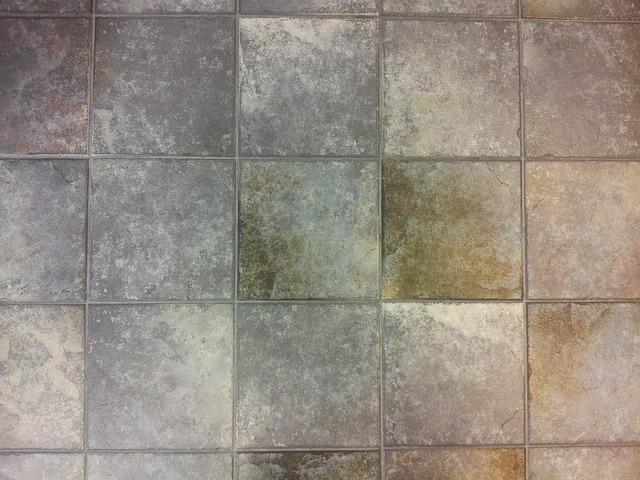In humid bathrooms, traditional tiles often fail due to water damage, cracks, and mold growth. Recycled bathroom tiles offer a durable, water-resistant, and eco-friendly alternative, suitable for both residential and commercial use. They're crafted from repurposed materials, reducing environmental waste, and come with enhanced longevity and easy care. When selecting water-resistant tiles, options include ceramic, porcelain, recycled, natural stones, glass, and composite materials. Proper subfloor preparation, adhesive, grouting, cleaning, maintenance, and sealing are crucial for durable installations and to protect against damage.
In the humid, high-traffic environment of the bathroom, choosing the right flooring is paramount. This is especially true when seeking durable and water-resistant options that also align with sustainability goals. Understanding the need for such tiles becomes crucial in preventing damage and ensuring a long-lasting space. This article explores the benefits of recycled bathroom tiles, delves into various material properties, and offers expert installation tips to guide you towards a functional yet aesthetically pleasing bathroom.
- Understanding the Need for Durable and Water-Resistant Tiles
- Benefits of Using Recycled Bathroom Tiles
- Types of Materials and Their Water Resistance Properties
- Installation Tips for Longevity and Performance
Understanding the Need for Durable and Water-Resistant Tiles
In the humid, often damp environment of a bathroom, choosing the right flooring is paramount for both functionality and aesthetics. Traditional ceramic or porcelain tiles, while aesthetically pleasing, can be susceptible to water damage over time, leading to cracks, discolouration, and even mold growth. This is especially true in areas with high humidity or frequent exposure to water, such as shower floors and walls. Understanding these issues highlights the growing need for durable and water-resistant bathroom tiles that can withstand the rigors of daily use and extreme moisture conditions.
Recycled bathroom tiles emerge as a modern solution, combining sustainability with superior durability. Crafted from recycled materials, these tiles not only reduce environmental impact but also offer enhanced resistance to water and moisture. Their robust construction ensures they remain intact even under constant exposure to steam and water, making them ideal for both residential and commercial bathroom installations. By choosing recycled bathroom tiles, homeowners and designers can achieve a stylish, functional space while contributing to eco-friendly practices.
Benefits of Using Recycled Bathroom Tiles
Recycled bathroom tiles offer a unique and sustainable option for those looking to enhance their space. One of the primary benefits is their environmental impact; these tiles are made from recycled materials, reducing waste and minimizing the need for new resources. This eco-friendly approach not only contributes to a greener planet but also provides an affordable alternative to traditional tiles.
Additionally, recycled bathroom tiles are known for their durability and water resistance, making them ideal for humid environments like bathrooms. Their manufacturing process ensures they can withstand moisture, mold, and mildew, ensuring longevity and easy maintenance. With these tiles, you can create a stylish and sustainable space that is both functional and kind to the environment.
Types of Materials and Their Water Resistance Properties
When it comes to choosing durable and water-resistant bathroom tiles, understanding the material properties is key. Ceramic and porcelain tiles are popular choices due to their inherent water resistance and ability to withstand moisture without warping or fading. Recycled bathroom tiles have gained popularity as an eco-friendly option, offering the same durability and water resistance as traditional tiles while reducing environmental impact.
Natural stones like marble and granite also provide a luxurious look but may require additional sealing to enhance their water resistance. Glass tiles are another unique choice, known for their sleek aesthetics and non-porous surface that repels water effectively. Composite materials, which combine various ingredients for enhanced durability, offer an innovative option with superior water resistance properties.
Installation Tips for Longevity and Performance
When installing durable, water-resistant tiles, such as those made from recycled materials, there are several tips to ensure longevity and optimal performance. First, prepare the subfloor meticulously; ensure it’s level and solid, addressing any issues like gaps or uneven surfaces. This foundation is crucial for preventing tile warping over time. Next, use appropriate adhesive and mortar mixes designed for moisture-prone areas, following manufacturer instructions for proper application.
Grouting is another critical step. Use a high-quality grout that’s suitable for wet environments, filling the joints evenly to prevent water seepage. Regular cleaning and maintenance are also essential. Keep an eye out for any signs of damage or disintegration, addressing them promptly. This includes sealing the tiles periodically, especially with recycled bathroom tiles which may require additional protection against moisture absorption.
When choosing bathroom tiles, opting for durable and water-resistant options like recycled bathroom tiles can significantly enhance your space’s longevity and aesthetics. By understanding the materials’ properties and installation best practices, you can create a stylish and low-maintenance environment that withstands the test of time. So, why not embrace sustainable solutions and transform your bathroom into a modern oasis?
